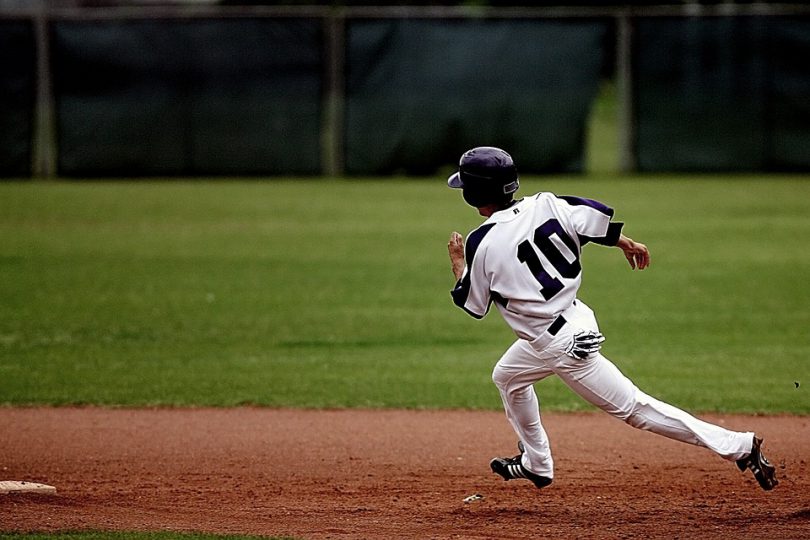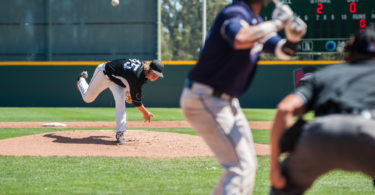The Situation:
Nobody on, 1 out, and the leadoff hitter is at the plate. The game is tied in the top of the 7th.
The Play:
The leadoff hitter hammers a line drive into the left-centerfield gap. The outfielders are already playing in no-doubles defense, so they are deep, but the ball splits the gap. The hitter has good speed and takes off around the bases. The second baseman leaves second base and goes out to be a part of the double-cut to third base. The hitter knows that getting to third base would make it much easier to score with one out. The throw comes in to the shortstop as the hitter turns second base hard. The hitter suddenly realizes that both second and third base are now covered and the shortstop has the ball, he tries to throw on the brakes, but he is already too far off second base to get back.
The Outcome:
The first baseman has done his job perfectly. As soon as the hitter rounded first, the first baseman trailed after him to cover second. When the hitter rounded second too hard, the first baseman called for the ball, and the shortstop alertly fires the relay throw to him. The first baseman (now covering second base) applies the tag before the hitter can get back to second base.
What Went Wrong?
The hitter had the right idea, but got too greedy. If it is possible, it is extremely important to make it to third base in that situation, so another hit is not needed to score a run. However, the batter should also realize that with the outfield playing deeper than usual at no-doubles depth, a triple will be incredibly difficult. When the ball is hit to the left side of the field, it is entirely up to the runner to make a responsible base-running decision. That’s because the ball is right in front of the runner, so he can see the entire play unfold. On a ball to that side of the field, you should not need a base coach to help you, making it even more important to think the game.
Remember, if you see the second baseman give up second, don’t be fooled into thinking that no one else will cover the base. Ideally, your coaches will be calling “Trailer!” to let you know that the first baseman is there. Even if you don’t hear anything, you have to assume that there is a trailer covering the bag. Being on base and in scoring position are the most important things in this situation. Understand that you have to be smart. In college, you’ll need to know when it is a good time to take a risk, and when to shut it down.







